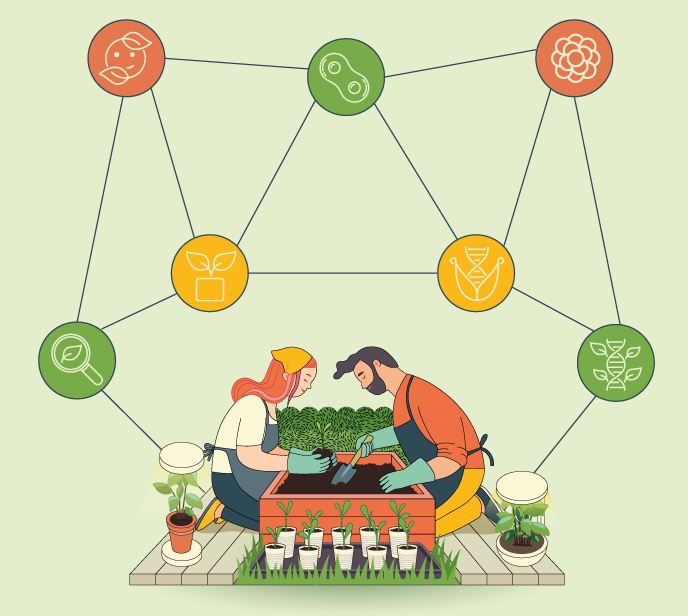Plant health: Protecting plants to safeguard our future
Plants are the source of air we breathe and over 80 % of the food we consume. They play a critical role in achieving sustainable and competitive agriculture and forestry sectors and the protection of biodiversity and ecosystems. Therefore, keeping plants healthy is not only important – it is absolutely vital.
Healthy plants are no easy feat
The achievement of healthy plants, however, is challenging for several reasons. For one, the trade and the movement of goods and people are facilitating the introduction, spread and establishment of plant pests and diseases. In fact, the Food and Agriculture Organization estimates that up to 40 % of food crops are lost due to plant pests and diseases annually. This impacts the food supply of millions of people and damages agriculture. Furthermore, climate change and intensification in agricultural and forest management practices can lead to the emergence of new pests and diseases, and existing ones are likely to become more severe. Adding to these challenges, people have turned to pesticides to secure yields in plant production. In doing so, there are mounting concerns over the effects of plant protection products on the environment, non-target organisms and human health. Understanding these challenges, the European Parliament and the Council adopted Regulation (EU) 2016/2031 on protective measures against plant pests in October 2016. The new rules entered into force on 13 December of the same year, and aim to modernise the plant health regime, enhance more effective measures for the protection of the Union’s territory and its plants, ensure safe trade, and mitigate the impacts of climate change on the health of crops and forests. The United Nations has also declared 2020 as the International Year of Plant Health with the aim of raising global awareness on the importance of protecting plant heath.
Research and innovation facing threats head-on
A significant amount of research and innovation activities have been undertaken to address the challenges to plant health. Many of these are funded under different areas of Horizon 2020, including Marie Skłodowska-Curie Actions, the European Research Council (ERC) and the SME Instrument. This pack focuses on 10 Horizon 2020 projects devoted to tackling the threats to plant health. The ASTERIX project has developed field robots that integrate machine vision and precision nozzle technology to discriminate weeds from plants and spray drops of bioherbicide only on the weeds, reducing the usage by more than 90 %. Another project, BIOFERTICELLULASER, employed plant growth-promoting bacteria as fertiliser to improve crop yield. Meanwhile, the DESSA project designed a decision support tool that provides accurate, farm-specific information to farmers on plant protection actions. The EMPHASIS project addresses native and alien pest threats for a range of both natural ecosystems and farming systems. EUCLID has developed sustainable pest management methods for European and Chinese agriculture, while FOUNDATION is studying the molecular dialogue of Fusarium oxysporum to find new control strategies. Then we have MET-PEST. This project has developed novel methodologies for the selective determination of fungicides in food, and in nEUROSTRESSPEP entirely new classes of biopesticides have been developed and tested. NEURICE has developed novel rice varieties with improved salt tolerance, and finally the POnTE project has optimised surveillance and prevention programmes for the management of future emerging agricultural diseases.



